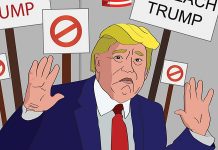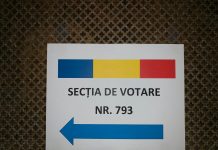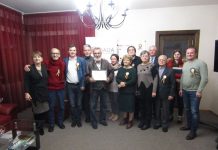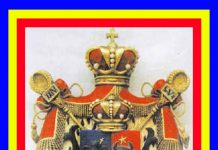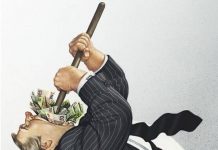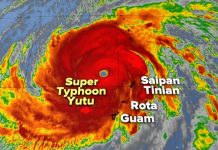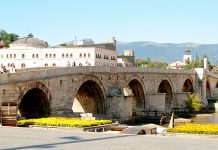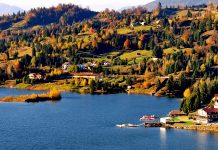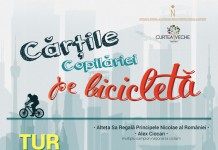This is my personal story about the events leading to my immigration to America and what followed. The reason I am writing this is mainly to preserve this story for my two American born daughters but also to make it known to people who:
* were born in the free world and don’t know otherwise
* came to America to join relatives, friends, or somehow had a (relatively) easy transition
* thought of immigrating, didn’t do it but wondered what it might have been like
What Life Was Like Back Then
In the beginning, say until I was 8-10, life was good, peaceful. Food was not too scarce, you could find nice clothes to buy, there were no lines in the stores. The bureaucrats were tame, the few hours of daily TV contained some good programming, you could see a variety of American, British, French, Italian, and all sorts of movies in town, people were friendly, in short the absence of liberty was not very acute. Parents and grandparents who remembered living before communism told wonderful stories of an abundance of everything, of trips abroad, etc. But we were fairly satisfied with what we had.
Of course, you knew that trips to the outside of the communist system, or even inside, to countries such as East Germany, was next to impossible. We were kept like in a cocoon, “protected” from the evils of the western society. We didn’t know much about the outside world. Only what we could glimpse from movies, songs, books. A lot of people listened to Radio Free Europe in secret. Communist propaganda about the goodness of the system vs. the “evil” of the western world only made people idealize the capitalist society which appeared like a kind of heaven that you dreamed about but knew you could not reach.
After a trip to China and Korea, President Ceausescu had a revelation. He envisioned a Chinese style communism for Romania, with him as the Romanian Mao. This thesis spells disaster for the Romanian people. He furthermore decided that Romania needed to pay its foreign debt. Quickly and in its entirety. Any means would be employed to do that. As such, anything that was produced in Romania that could be sold to the western markets for no matter how little, was sold indeed. A long period of deprivation started. People became surly, suspicious, despondent. The main occupation became to “hunt” for necessities such as food, clothing, toiletries, etc. Sometimes, fights erupted in lines when people thought that somebody was cutting in front of another. It helped if you made friends with the shop clerks who tipped you when food was expected. There were long lines for anything. If merchandise was delivered, it was soon sold out. It was never enough. Sometimes you waited in line for hours, and whatever it was you hoped to buy would sell out just a few people in front of you. Many articles, such as sugar, flour, oil, etc. were rationed. If it was not officially rationed, people in line took it upon themselves to ration so that the merchandise could be accessible to as many as possible.
Everybody was employed, that was a good side of the system. However, probably a good percentage of people employed had nothing to do. Organizations were not at all profitable. And nobody cared. Everything was state-run. Nobody had any incentive to do better. Your salary and vacation time were dictated by labor codes. When you started, at the beginning of one’s career, you got two weeks vacation and towards the end you generally got 4-5 weeks. Raises depended on seniority. There were no merit raises. Everybody knew each other’s compensation. In fact, on payday, the bookkeeper and another 1-2 persons would go to the bank and come back with a bagful of cash. Then, right there at her desk, in the midst of a roomful of people, she would separate the cash into piles of money. Everybody then came to her desk and signed for his/her pay and then collected it in front of everyone else. Nobody was fired. During work hours, you could see lots and lots of employees leaving their work place to go out searching for some lines where food might soon be delivered. The interesting thing was that people were waiting in lines even before merchandise was delivered. If you saw a line, it was a good sign. There was a joke with a man with some empty bags that attaches himself to a line and a friend passing by asks him what is being sold. The first man answers that he doesn’t know but if there is a line, he surely needs that. Many times the lines were so long that they spilled outside of the store and around the building. President Ceausescu hated to see those long lines so he ordered at some point that lines should form only at the back of the store so that they couldn’t be seen by passerbys.
There were no supermarkets of course, and you had to go to many stores for different things. And of course, you didn’t find what you needed. People became creative, improvising menus from anything they could get. For instance, chickens were not readily available. Breasts, thighs, wings were usually exported. What was sold was the back, head and feet. And even this would not be readily available. If you found it, you could make wonderful soups or stews. I remember once going to eat with my mother at a restaurant in a seaside resort and finding that the chicken soup contained a head and two feet. There was nothing edible in that. But it was still chicken soup. You couldn’t take the restaurant to task.
(to be continued)





